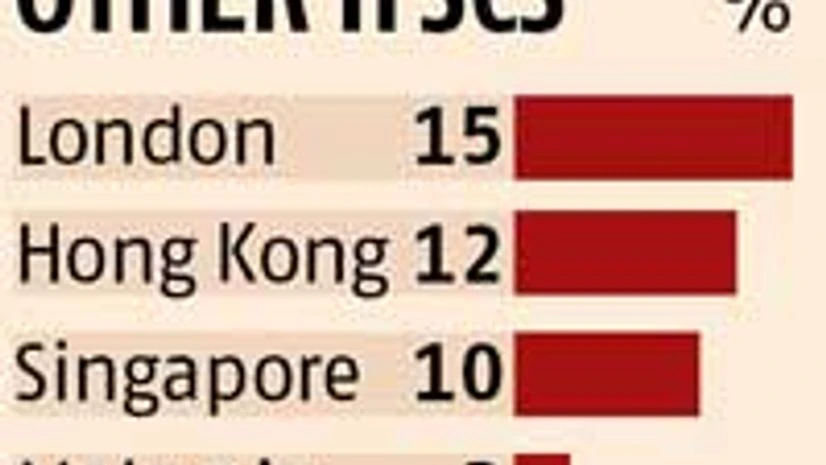Reserve Bank of India (RBI) Deputy Governors R Gandhi and Urjit Patel; Securities and Exchange Board of India (Sebi) Chairman U K Sinha; Insurance Regulatory Authority of India (Irdai) Chairman T S Vijayan; and Gujarat Chief Minister Anandiben Patel, were also present at the launch.
“With IFSC at GIFT (Gujarat International Finance Tec-City), the state (Gujarat) is trying to become the a hub for financial services which was earlier attributed to Mumbai,” said Jaitley.
During the launch, Jaitley called for ‘internationally compatible’ and ‘non-adversarial’ tax regime within the same.
“The Centre has an enormous task ahead. We’re trying to present a taxation regime which is internationally compatible and non-adversarial. If other IFSCs are more compatible than us, then we could lose business to them. We have to present a tax regime that is compatible,” said Jaitley.
The tax rate at IFSCs in Dubai, Malaysia and Singapore are zero per cent, three per cent and 10 per cent, respectively. The tax regime at IFSC at GIFT will have to be competitive enough to match those of the other IFSCs.

Commending GIFT for setting up a model, Jaitley said: “I would ask other states to emulate the project (GIFT City), only then can we build 100 smart cities.”
Alleging that people with vested interests have filed public interest litigations to hinder development work, Jaitley said litigators should also be required to declare their source of funding the way politicians have to declare assets while contesting elections. “These conscious-keeper crusaders should be more transparent than us and the world should know where the funds for these litigations are coming from,” he added.
The launch also saw the signing of a memorandum of understanding between GIFT City Company Ltd, which develops the GIFT project, and Kotak Mahindra Bank wherein the latter has committed to take up space within the IFSC.
While each of the regulators - RBI, Sebi and Irdai - had issued their respective guidelines for offshore banking, insurance and capital market activities within the IFSC, a booklet on all the regulations for IFSC was unveiled by Jaitley here on Friday.
Talking about potential business prospects in insurance, Irdai chairman Vijayan said reinsurance business worth Rs 7,300 crore was currently being moved out of the country. However, with the regulations in place for IFSC, units at IFSC can get this business, thereby adding to the country's growth.
RBI deputy governor R Gandhi laid out the guidelines for public sector and private sector banks as well as foreign banks to operate from within IFSC.
Flagging concerns over start-ups raising capital from outside India, Sebi’s Sinha said fund-raising for start-ups should be made more favourable in order to stop them from raising funds overseas. “The guidelines are based on this to provide investment opportunity for raising money. If India has to grow at eight per cent or more, we need favourable environment to raise capital,” said Sinha.
The launch saw the presence of heads of several major banks, insurance companies, asset management companies, broking houses, and stock exchanges, apart from private equity players.
| MAJOR GUIDELINES |
|

)
